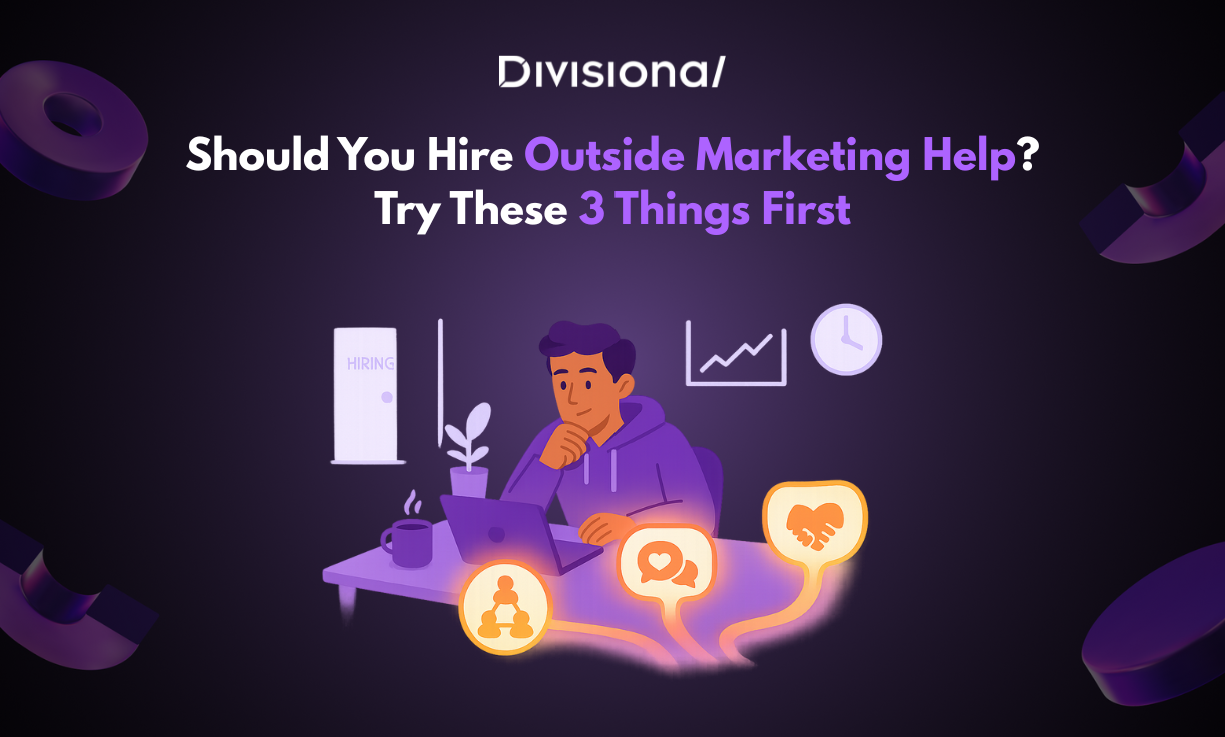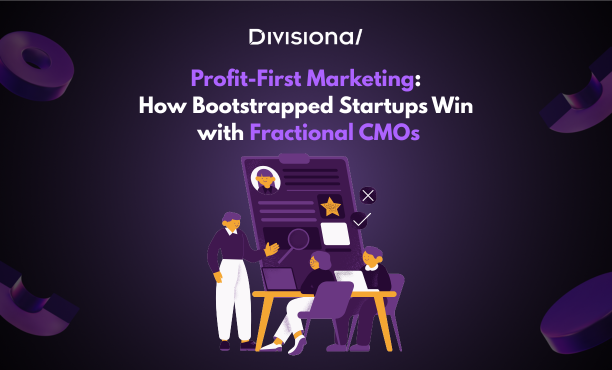.png)
Growth
Oct 21
Spotlighting Divisional’s Founder: Trevor Sookraj
For all companies, it’s important to start with the “Why”. Trevor Sookraj, the Founder of Divisional, also has an interesting story behind why he started Divisional. In this rapid-fire Q&A, he shares his philosophy behind the company, its mission, and his unique perspectives on growth marketing and fractional work.
Why did you start Divisional?
I started Divisional from the experience of being both a freelancer working with early stage startups, and working in-house as a full-time marketer. As a full-time hire, there are a lot of things I was doing that were out of scope. I needed someone who could think about growth holistically, and own experiments that spanned multiple channels, but agencies just weren’t designed to do that. If I told an agency to run an experiment on LinkedIn Ads, they wouldn’t come back and say that my product experience should be improved in certain ways—only a growth marketer would do that.
As a freelancer, I tried to replicate what I wanted in a part-time hire, but I was burning out by doing way too many things. It was an inefficient use of my time and I wasn’t well supported. I distinctly remember building landing pages in Figma and Unbounce, despite it not being my strong suit, because it would take too long to recruit a web designer. More importantly, there were lots of problems I had to solve that I didn’t have reps on—what if I wasn’t doing it the right way? I built Divisional to offer a better option for early stage startups to work with marketers who have experience in their industry and channels, and are supported by growth resources (design, VA, writer, etc.) so they’re only doing what is the best use of their time.
What is the mission of Divisional?
The mission of Divisional is to help startups work with marketers who are the right fit for them. From a startup perspective, this means figuring out who to work with and how to work with them. Founders often meet great marketers but don’t know how to approach them for fractional work, nor do they know what to expect. From a marketer’s perspective, this means helping you work on problems you’re passionate about, and making you feel well-supported throughout that process. Being the first marketer at a startup often feels like you’re operating on an island. With Divisional’s community, you won’t feel that again!
What is Divisional’s greatest strength?
Our flexibility. We’re not an agency, we’re not a platform; we want you to feel supported throughout the recruitment process and make sure you’re seeing a positive impact. We really care deeply about making our founders and marketers successful. I’ve seen both sides of this: startups that have limited resources, and marketers that burn out from working too hard. Divisional is here to help both sides of the coin.
What does growth marketing mean to you?
Growth marketing means creating experiments that drive results for the company, where you can easily track whether they’re successful or not. It doesn’t have to be specific to a channel, such as paid ads or organic—it means literally anything. All it comes down to is:
- Do you have a clear idea of what you’re expecting from running a campaign
- Do you know how you’re going to learn from it, irrespective of whether it succeeds or fails?
That way, you’re constantly moving in a system of iteration to get to a place where everything you run is backed by data and a strong understanding of what you’ve done in the past.
Why is fractional work successful?
Working fractionally is successful because the best marketers are never looking for jobs. Usually, the person we bring onto your team is a great fit because they are someone you had a really good connection with and you think can add value to your company. That’s how the best startups have been built: through friends, referrals, and networks. Not by recruiting, and trying to pull people from other jobs—which is unfortunately how it’s currently run. As a startup, working fractionally, you can find the right kind of person that’s a good fit, and as a marketer, you can do work that you enjoy.
Best advice for founders?
The best advice I can give to someone starting a company is that as a good founder, your time is your biggest resource. You want to make sure that you are doing things efficiently, that you know exactly what your goals are, and who can help you to get there, so you use your team accordingly. Whether you’re a venture-backed startup or a small business, making sure your time is spent well is the best thing you can do as a founder in your early stages.
Interested in learning more about how Divisional can help your startup? Get in touch with us today!


